Interview: Mark Kenneth Woods
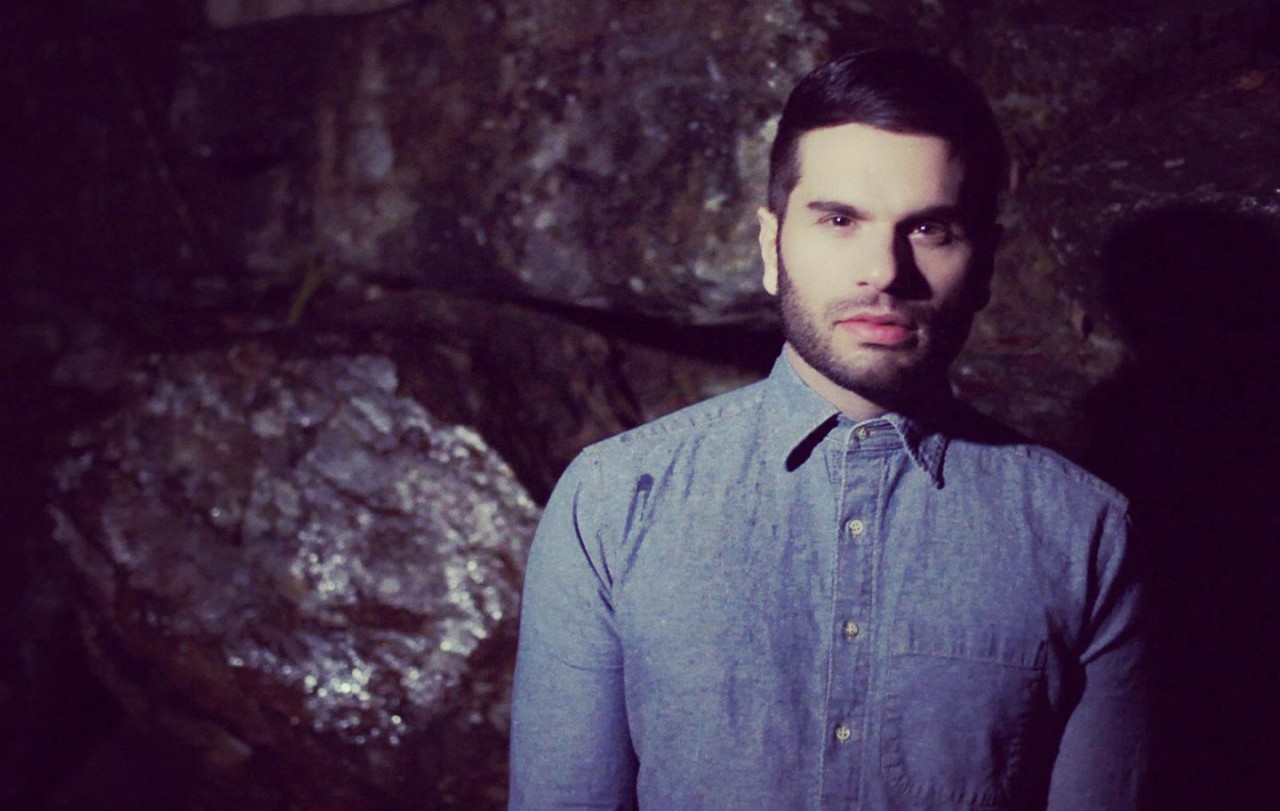
Mark Kenneth Woods Discusses “Take Up The Torch”
From Olympic Gold-Medalist Mark Tewksbury’s coming out in 1998, to the controversy in Sochi 2014, and the unprecedented growth of the Pride House movement, “Take Up The Torch” is an inspiring look at the past and present heroes that are making the Canadian sports landscape more LGBT-inclusive. The film features Olympians Mark Tewksbury, Charline Labonté, Anastasia Bucsis and John Fennell.
Directed by Mark Kenneth Woods and Michael Yerxa.
What moved you to make this film, and why is this topic important to you?
This film is a collaboration between myself and Michael Yerxa (1 Girl 5 Gays). We had wanted to work together for a couple years, and with the Pan Am Games in Toronto in 2015 and our not-so-mild obsession with the Olympics, the timing seemed right for this topic. Sports and LGBT people have a complicated relationship, and it’s really one of the last major Canadian institutions where homophobia and sexism is not only openly tolerated, but used as motivation. We wanted to explore the experience of LGBTQ athletes in Canada, from when Mark Tewksbury first came out in the 90s, to the young athletes of today that are effecting change.
Why is this currently such a hot topic?
I think the Sochi Olympics and the Russian Government’s laws on “homosexual propaganda” was the catalyst for the present day discussion. And since then, we’ve seen the topic a lot more in the media, such as athletes slowly coming out (like Michael Sam, Fallon Fox) which is great. But the reaction to their coming out has often been disturbing, with fellow athletes saying things like “I wouldn’t want one on my team.” Clearly there is more work to be done.
Why should Mark Tewksbury be celebrated?
After a gold medal in the backstroke in the Barcelona Olympics in 92, he was the first sports hero in Canada to come out publicly at a time when doing so had harsh consequences. He essentially became the spokesperson for all things LGBTQ and sports in Canada for the last 15-20 years. For many years, he was the only out sports figure in this country, and there still aren’t that many! He really turned his negative experiences into activism and, in more recent years, has mentored a new generation of LGBT athletes.
What were some of the larger roads blocks working on this production?
Speaking to athletes that were not only out, but were willing to go on TV to tell their stories was a challenge. Being out to family and friends is one thing, but being out publicly as an athlete can often come with a sensationalist media frenzy. We saw a lot of hesitation but ultimately, the athletes hoped their visibility would help others to come out.
How does this topic differ between Canadians and our American brothers and sisters south of the border?
Athletes have very similar issues across the board, but, in many ways, it’s different because the amount of money and prestige that goes along with amateur sports in the US. Some of America’s athletes have a lot more to lose financially and professionally. I think for that reason, the mainstream media attention has largely focussed on US athletes. We really wanted to tell the Canadian story, and not just about our athletes, but about how Canada has been a leader when it comes to LGBTQ people in sports. Consequently, we also focused on Canadian-involved initiatives like the Pride House movement and “You Can Play”.
Where do you see things headed?
It’s been a slow road, but I think in five years it might not be an issue in Canada anymore. Obviously the cultural attitudes in North America are shifting in general, but I think the next step will be navigating the inclusion of trans athletes here, and taking the LGBT inclusion message to other countries. It will be interesting to see where we’re at on this topic for the 2022 FIFA World Cup in Qatar and the 2022 Winter Olympics in Beijing.
Tell us about the OutBiography Series and the other productions you have done with OUTtv.
The OUTbiography series is a 6-part docu-series exploring LGBTQ people who have made significant strides in our movement. It explores everything from fashion, music and drag culture to discriminatory laws and, of course, sports.
Aside from this doc series for OUTtv, last year I also wrote and directed the “Coffee Frenemies” Starbucks commercial with Bianca Del Rio and Adore Delano. I followed them around during their 4-day stay at World Pride for a documentary that aired called “This is Drag”. I have also spent the last two years playing 9 or so weirdos in “The Face of Furry Creek”.
You participated in the Colour By Icons exhibition at Never Apart. Tell us who you chose to “colour in”, and why you did it.
I chose Alan Turing. He’s really the father of the modern day computer. I mean, think about the role computers play in our lives today! It’s insane. And he helped the allies win WW2 by decoding Nazi messages. No big deal right? Oh, and he was gay. So instead of being celebrated, he was chemically castrated.
I forwent colouring him in with paint or markers, and naturally chose to “colour” him in using photoshop with a pattern of 01’s.
What are you currently working on and what is coming up?
I’m working on a number of things. I just got back from Nunavut where Michael Yerxa and I were working on our second documentary collaboration together about LGBTQ identities and activism in the North. It’s such a magical and complex place that so little of us in “the South” ever see or learn much about. We’re bringing their LGBTQ stories to the rest of Canada (and the world hopefully).
My comedy side may also get its fix later this year in a new factual series, but mum’s the word for now.

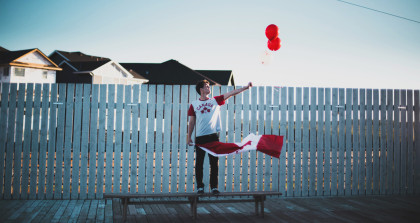
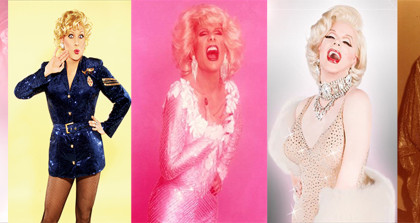
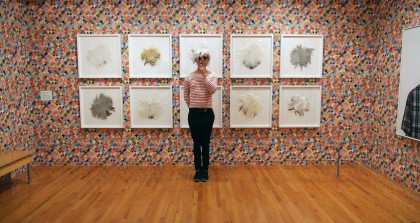
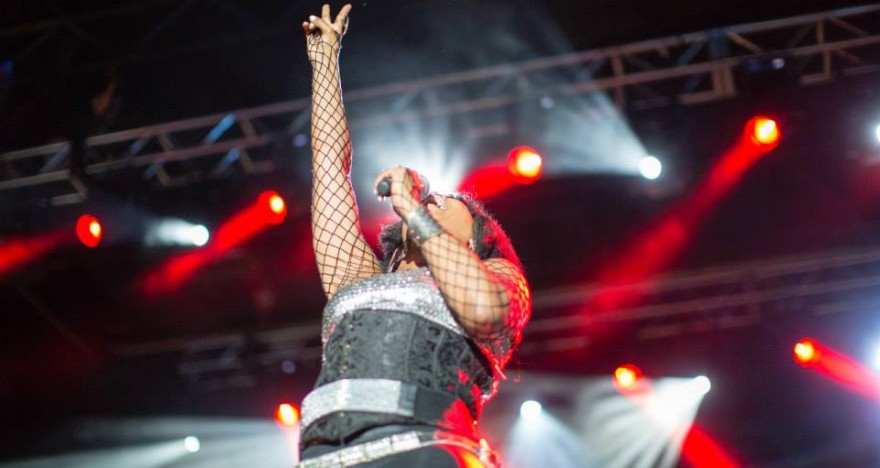
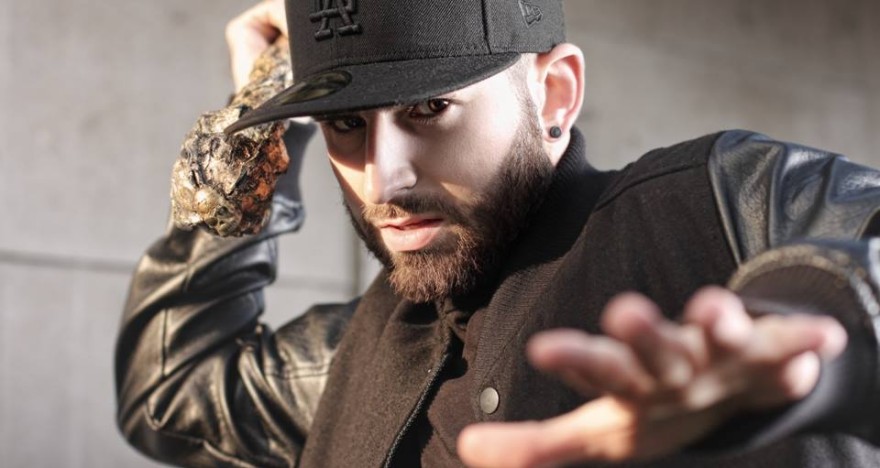
View Comments
No Comments (Hide)